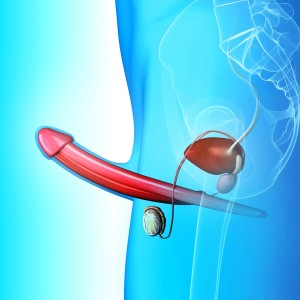Priapism (Prolonged Erection) – Causes and Treatment
While sexual stimulation can cause a normal erection, it does not typically cause priapism. The cause can vary, but it’s often related to an underlying medical condition, such as sickle cell anemia, blood disorders, or neurological conditions. It is not the same as an erection that lasts for a long time due to sexual stimulation. While an erection that lasts for several hours can be a sign of a medical condition, it’s not necessarily a sign of priapism.
What is priapism?
Priapism (prolonged erection) is a medical condition that causes a persistent, painful erection. It is usually caused by a blockage or reduced blood flow to the penis. This can be a serious condition that requires medical treatment, as it can cause damage to the penis if not treated quickly.
There’s a lot of interesting research on it. For example, according to the National Institutes of Health, approximately five out of 100,000 men are affected by priapism each year. The risk is higher in men who have certain medical conditions, such as sickle cell anemia and leukemia. In terms of age, it is most common in men who are between the ages of 20 and 50.
Types of priapism
There are two main types of priapism:
- ischemic priapism
- Non-ischemic priapism
Ischemic priapism is caused by a blockage of the blood vessels that supply the penis, which results in a lack of oxygen and nutrients to the area. Non-ischemic priapism is caused by excessive blood flow to the penis, which causes swelling and pressure.
Causes
There are many different possible causes of priapism. Some of the most common causes include sickle cell anemia, leukemia, spinal cord injury, and certain medications. Other possible causes include trauma to the penis, use of illicit drugs, and heavy alcohol consumption. In some cases, the cause may be unknown. If you have it, consult a doctor so that they can determine the cause and recommend the appropriate treatment.
Symptoms
The most obvious symptom is a persistent, painful erection that lasts for more than four hours. Other symptoms include swelling of the penis, redness, and warmth of the skin.
In some cases, there may also be pain in the pelvis, groin, or lower abdomen.
In severe cases, there may be changes in the color of the penis, such as a bluish or grayish tint.
The causes can vary, but it’s often related to an underlying medical condition, such as sickle cell anemia, blood disorders, or neurological conditions.
Diagnosis
The first step in diagnosing priapism is usually a physical examination of the penis. Your doctor may also order blood tests and imaging studies to rule out any underlying conditions.

Treatments options for priapism
The treatment for priapism depends on the type and severity of the condition:
For ischemic priapism, the goal is to restore blood flow to the penis as quickly as possible. This is usually done by draining the excess blood from the penis.
For non-ischemic priapism, the goal is to reduce the swelling and pressure in the penis. This is often done with medication or surgery may be used to reduce swelling and pressure in the penis.
Note that if it is not treated promptly, it can lead to permanent damage to the penis. This is why it’s important to seek medical attention as soon as possible if you experience any of the symptoms.
Can sexual stimulation cause priapism?
While sexual stimulation can cause a normal erection, it does not typically cause priapism. It is usually caused by an underlying medical condition, such as the ones we’ve already discussed. It is not the same as an erection that lasts for a long time due to sexual stimulation. While an erection that lasts for several hours can be a sign of a medical condition, it’s not necessarily a sign of priapism.
Potential health effects of priapism
If priapism is not treated promptly, it can lead to tissue damage and scarring of the penis. This can cause erectile dysfunction and other sexual problems. It can also cause blood clots, which can lead to serious health problems. In rare cases, it can even be life-threatening.
How can priapism be prevented?
While there’s no guaranteed way to prevent priapism, there are some steps you can take to reduce your risk.
- Manage any underlying conditions that could contribute to it, such as sickle cell anemia or blood disorders.
- Avoid medications that can cause it, such as some antidepressants and anti-seizure medications.
- Avoid using recreational drugs that can cause it, such as cocaine and amphetamines.
Your Wellness Is Our Concern At Fekomi Wellness
Are you suffering from sexual dysfunctions such as erectile dysfunction, premature (delayed) ejaculation, and low libido? Fekomi herbals has the ultimate solution.
Also, our team of highly qualified and certified healthcare consultants at Fekomi wellness are always ready and happy to help you with your health concerns. Visit Fekomi wellness today to book an appointment and get started on your health journey. Kindly call our desk line on +2349074197154 for more enquiries.
